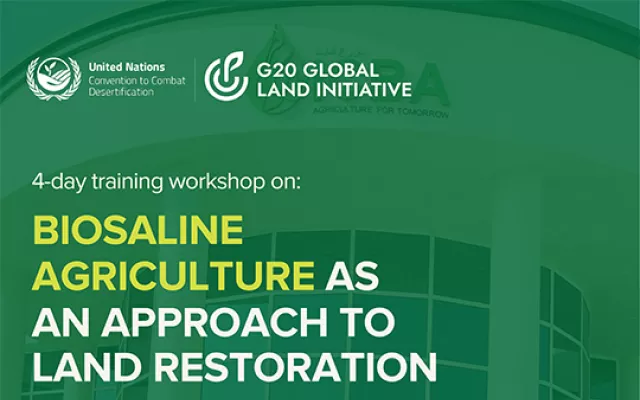Webinar: Enhancing Millet Value Chain for Sustainable Livelihoods and Climate Resilience
Context
Smallholder farmers are increasingly facing challenges due to climate change, such as erratic rainfall and frequent droughts, which threaten crop production worldwide. Extreme weather events, including heavy rainfall and prolonged dry spells, have severely impacted agricultural yields. In response, farmers are turning to more resilient crops like millet, which can thrive with minimal water and has a short growing cycle. This adaptation, supported by improved farming practices, helps farmers manage climate uncertainties and secure their food supply.
Promoting resilient crops like millet supports broader goals of enhancing local food production, improving nutritional security, and fostering climate-friendly agriculture, particularly in regions with unpredictable weather. Millets are hardy crops that can withstand extreme heat, use 70% less water than rice, grow in half the time of wheat, and require 40% less energy in processing. Consequently, they play a crucial role in ensuring livelihoods, food security, and nutritional well-being for underserved populations worldwide.
While different types of millets have varied production and processing needs, most research and innovations tend to focus on dominant grains, leaving millets underrepresented in the food chain. Reviving millet production and processing practices on a global scale can improve resilience to climate change, address water shortages, and enhance food security to countries like India and Africa.
Knowledge session
The webinar aims to discuss successful initiatives, share key learnings, and raise awareness about smallholder and community-centric approaches across the millet value chain from input to processing and market. Additionally, it will shed light on the vital role of women in the millet value chain. The event will collaboratively chart pathways for key ecosystem stakeholders such as civil society, community organizations, research institutions, enterprises, and government departments to strengthen the millet value chain.
The event will also bring together ecosystem stakeholders involved in sustainable production practices, research scientists, gender experts and clean energy experts to integrate sustainable energy into millet value chain. It will serve as a common platform for discussing key learnings and best practices, informing strategies for climate adaptation. The webinar will combine focused discussions and learning sessions to comprehensively address all aspects of the millet value chain.
Objective
To bring together experts from Global South to share insight and learnings on innovations in millet production and processing systems. The webinar will explore sustainable production practices, post-harvest systems, role of women, alongside advanced techniques for climate resilience and food security.
Key themes
- Sustainable Production Practices: Innovations and practices for enhancing millet cultivation and post-harvest management.
- Integration of Decentralized systems and community-owned approaches.
- Advanced techniques and methods for building Climate Resilience in millet production and processing systems.
| IST Time | UAE Time | Topics |
| 11:30-11:40 | 10:00 - 10:10 |
Overview of the webinar objectives and agenda - Ms. Simrin Chhachhi, Senior Program Manager, SELCO Foundation Opening remarks - Ms. Huda Jaffer, Director, SELCO Foundation |
| 11:40-11:45 | 10:10 - 10:15 | Case Study Showcase - Short video |
| 11:45-12:25 | 10:15 - 10:55 |
Knowledge Sharing Sessions Speakers:
|
| 12:25-12:30 | 10:55 - 11:00 | Closing remarks and Next Steps |








